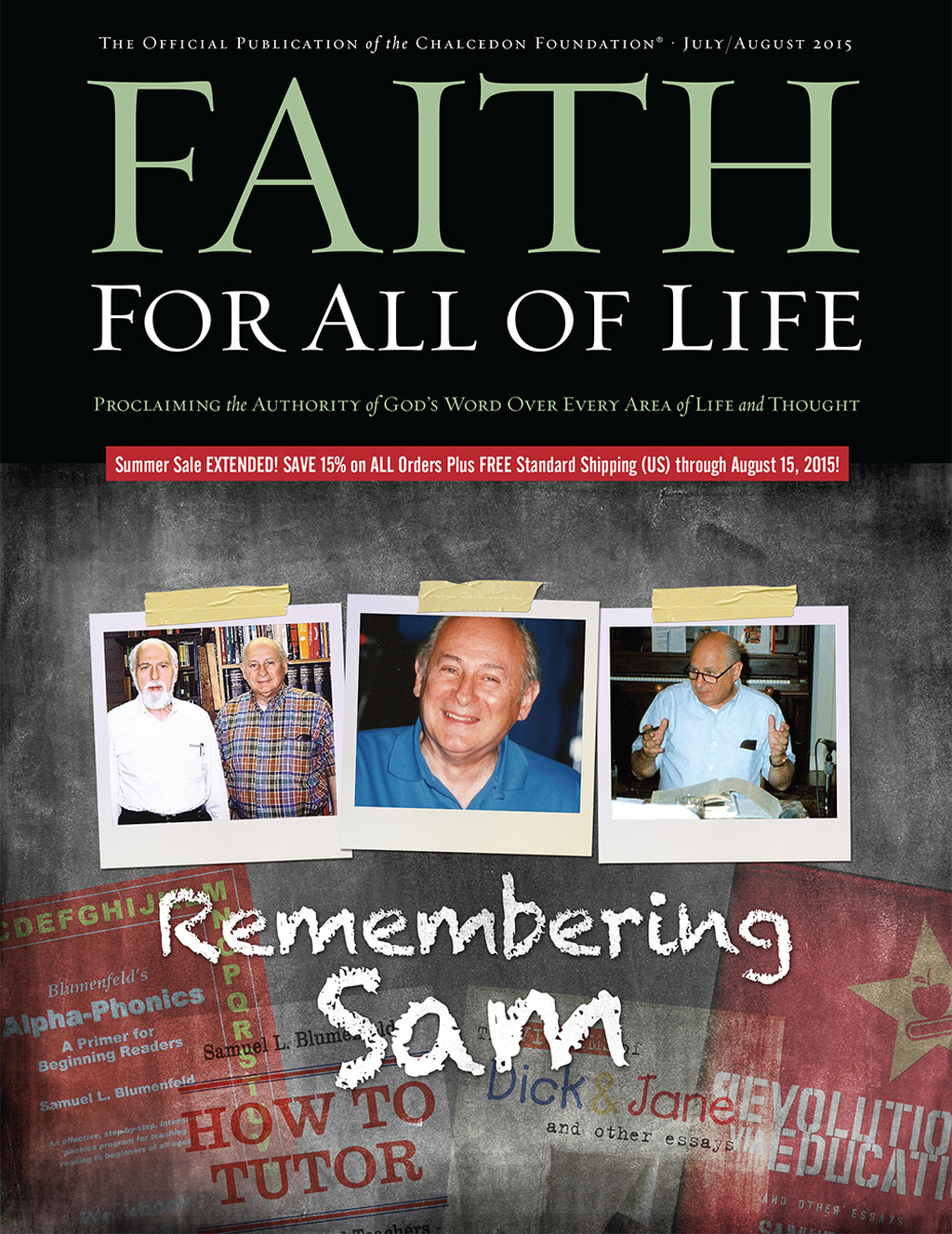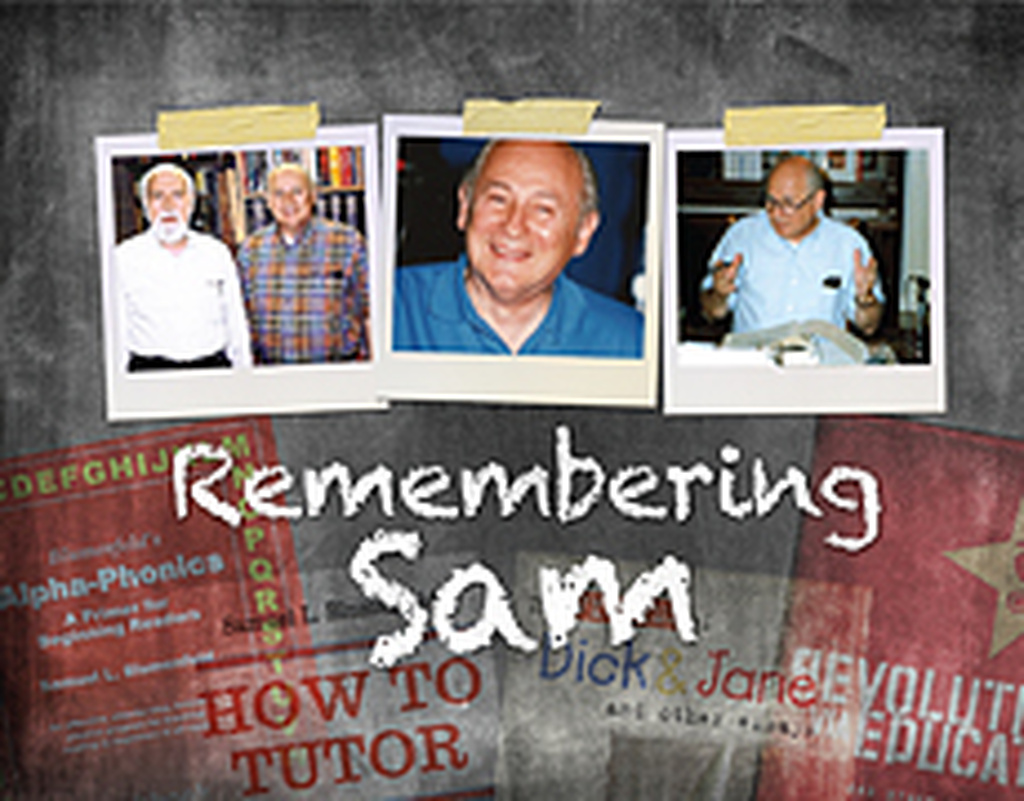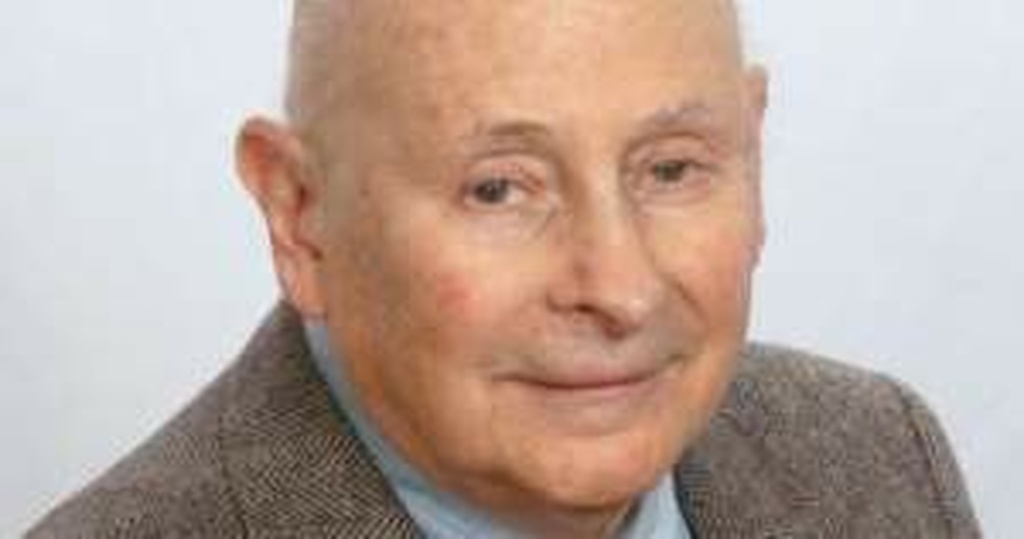
Magazine Issue
July-August 2015 Articles:
The Legacy of Government Education

- Mark R. Rushdoony

Sam Blumenfeld: Public Enemy #1

- Martin G. Selbrede
Sam Blumenfeld’s Counter-Revolution
- Geoffrey Botkin

Remembering Sam

- Andrea G. Schwartz
A Foreword to Blumenfeld’s Masterpiece
- Bruce N. Shortt
When State Sovereignty Defies Divine Sovereignty
- Kevin Craig
My Time with Sam Blumenfeld
- Paul Michael Raymond

Review of The Green Ember (Novel)

- Lee Duigon
A Brief Update on Dr. Punyamurtula S. Kishore (9)

- Martin G. Selbrede